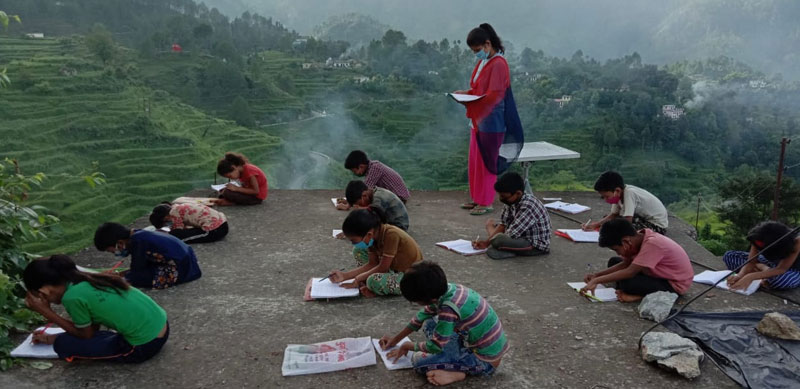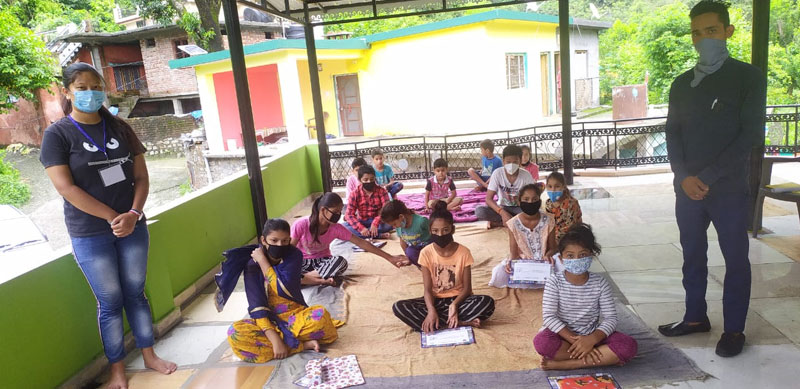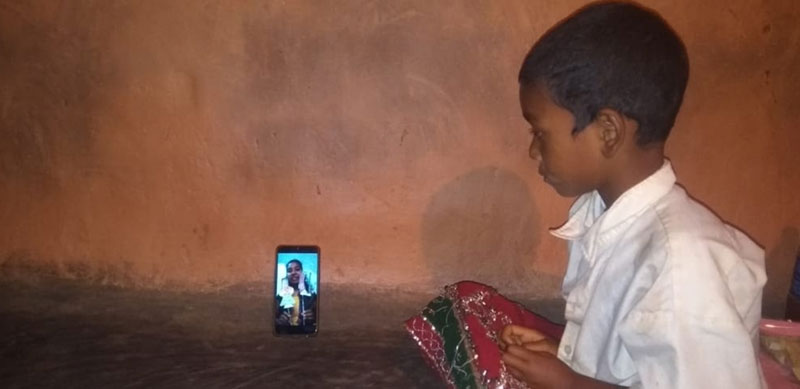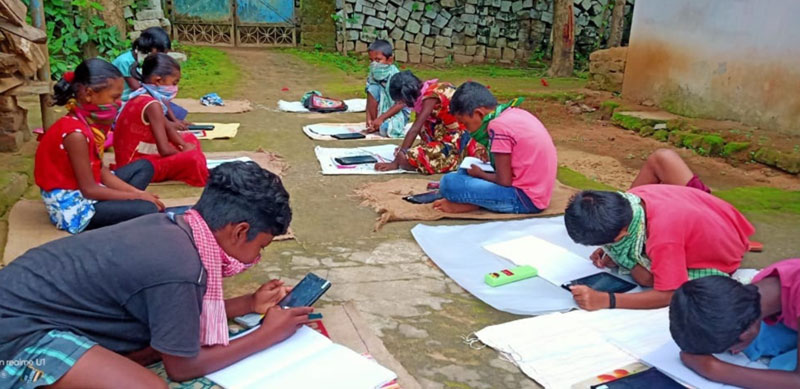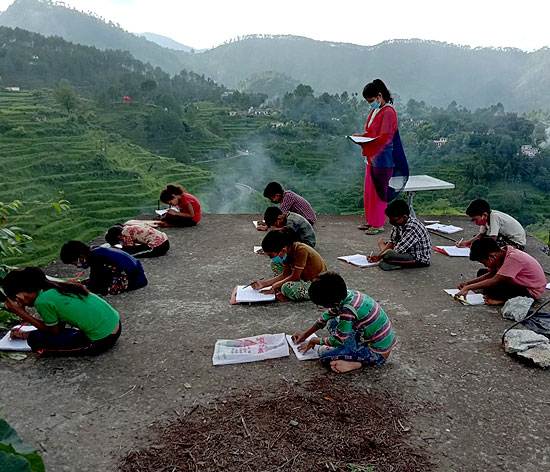
When schools closed early due to the current global health crisis, the Education Team from the Tata Trusts’ Himmotthan Pariyojana initiative were troubled – their intervention in the region had just got off the ground six months previously. Moreover, they knew that keeping children out of school for months meant setbacks in their learning and development. This was a serious issue, especially for children from disadvantaged backgrounds, who already achieved less on average than their better-off companions.
In Jharkhand, the situation was even more dire. Even before the region went into lockdown, teachers were reluctant to use virtual learning tools available in the state, because of their lack of awareness of technological methods in education. Though the state conducted meetings on Google Meet, Zoom, etc., the teachers themselves were finding it difficult to use these tools. They didn’t know how to add their students’ phone numbers to state-mandated WhatsApp groups or connect with children or parents. Moreover, once the health crisis broke out, the district administration began to deploy teachers for non-teaching activities like COVID-19 surveys, or as magistrates at the district’s entry points. The Collective for Integrated Livelihoods (CInI), a nodal agency of the Trusts, had their work cut out for them.
A multi-pronged approach
In Uttarakhand, Himmotthan volunteers and para teachers swung into quick action. Beginning the first week of April, several open community classrooms were set up across project villages in six districts so students who didn’t have smart phones could be taught for two hours each in the morning and evening. At the same time, 150 government teachers of Kotabag block in Nainital at the foothills of Middle Himalayas, supported by Himmotthan volunteers, came together to create a WhatsApp group to engage rural children in activities such as early literacy, numeracy, and physical literacy with emphasis on learning improvement, through audio-visual stories and poems, asking questions and encouraging interaction, as well as organising story-telling, poetry recitation, painting and arts and crafts competitions to help students express their feelings. These activities fulfil Himmotthan’s project objectives as well as help map children’s learning outcomes during this lockdown period. “Virtual classrooms and various online tools allow us to make the engagement between teachers and students as close to a real, in-classroom experience as possible,” says Amit Chand, Block Education Officer, Nainital.
Meanwhile, CInI worked to motivate teachers and resolve their issues in the central Indian states. Teachers were provided with a platform to share their concerns and problems and discuss the support that CInI could provide. Training modules from NISHTHA, RTE-related articles, etc., were shared with the teachers, who would then be quizzed on the subject matter. CInI’s team members taught teachers how to access Google documents, discuss the articles and share their inputs online. The CInI team also created an open platform called ‘Shaikshik Jagar’ where teachers from Maharashtra, Gujarat, Jharkhand, and Orissa could share their experiences of working with children during the lockdown. Vishwamitra Ram, an assistant teacher at GPS, Jamuadag, Khunti district, is full of praise for CInI for “bringing together teachers to support children’s education during these COVID times.”
Making a difference
The Himmotthan team also focused on building teacher capacity using platforms like Zoom, YouTube, and Facebook. They also hosted a series of workshops: children’s literature exponent and winner of the 2019 ‘Big Little Book Award’, Prabhat, and Uday Kirola conducted a session on the need for books in their ‘mother tongue’ for children in the primary section; Ambarish Ray, National Convenor, RTE forum, held a Zoom session on RTE during COVID; Shiv Prasad Semwal, CEO, SSA, hosted a session on teachers’ engagement during COVID, Parag’s Nitu Singh held sessions on Library Management, and Reading Abilities for Teachers. Alongside, Himmotthan’s education team also encouraged children to cultivate a reading habit.
The importance of mental health during these stressful times was not overlooked – in collaboration with the Institute of Human Behaviour & Allied Sciences, the Himmotthan team organised a ‘National Seminar on Mental Health during COVID’ for both teachers and students.
The CInI team’s efforts were equally successful – teachers not only attained proficiency in using online educational tools, they were exposed to new perspectives on both teaching and learning. “There were very few digital devices available,” says Lepo Munda, a government teacher in Gadamada, “but with support from CInI, I have been able to show and send digital content to my students. Their interest has also increased.”
Reading available articles also helped teachers brush up their own knowledge of their subject matter, while exposing them to the latest developments in their fields. The discussions helped them articulate their thoughts on the articles they read and piqued their interest in learning more.
Learnings from the experience
It has been a long journey through trying times. Along with the teachers and students who have had to adjust to new teaching methodologies and learning assessments, both the Himmotthan and CiNi team had to reassess their future plans to attain their goal of achieving quality education for all. But as Neelima Pandey, a teacher in the government school in Dhanpur, Kotabag, says, “it’s a small step to a beautiful, fruitful and satisfying destination. Our journey continues.”
